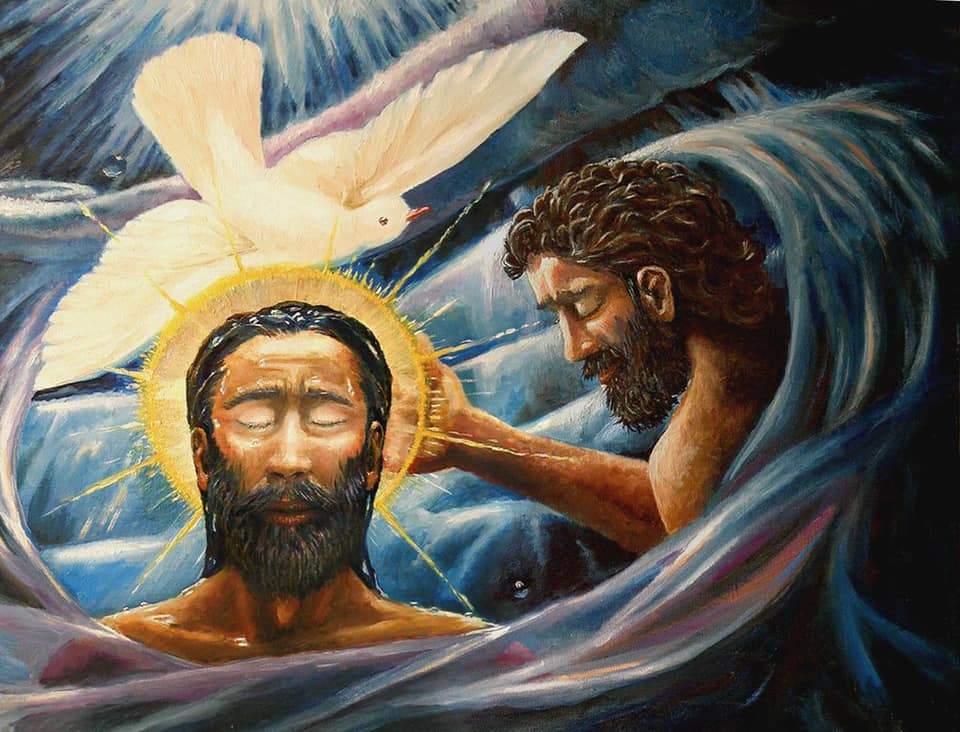THE VOICE
June 24, 2020PEOPLE OF SOLITUDE
June 26, 2020
Homily for 25 June 2020, Thursday of the 12th Week in Ordinary Time, Mat. 7:21-29
You do not build a house on sand; you build it rather on rock. Meaning, on solid foundation, if you want it to withstand the tests of time, like typhoons and earthquakes. The imagery is of course being used figuratively, not literally. If you have a good literary sense, you will be able to connect it immediately with the first reading about the collapse of the Temple during the Siege of Jerusalem by the Babylonian empire, one of the most tragic historical events in the life of the Israelite people.
Did the temple collapse because it was not built on solid foundation? Yes, if you can think metaphorically, not literally. That would require a good use of your imagination.
I imagine that when King Nebuchadnezzar of Babylon ransacked the temple in search of treasures, the first thing he looked for was the Ark of the Covenant. He must have been so excited to lay his hands on this gold-plated box with two angels guarding its top. He must have thought it was full of precious jewels. I imagine his disappointment when he ordered his men to open the sacred box, only to find out that there was nothing inside except two tablets of stones with the ten commandments inscribed on them. He must have been enraged! He must have said to himself, “That’s it? That’s what I had come to this place for? So this fabled treasure chest which is guarded by priests perpetually actually contains nothing but two pieces of worthless stones?” He must have felt cheated he ended up demolishing the whole temple that had been built by King Solomon.
The closest parallel that I can think of for us Catholics is a story of a parish whose Adoration chapel had been broken into by a burglar. The parish priest later theorized that the thief must have been motivated by the biblical passage that was written on the façade of the Adoration chapel, quoted from the 2nd letter of Paul to the Corinthians, chapter 4, “This treasure we possess in earthen vessel to make it clear to us that its surpassing power comes from God and not from us.”
That morning after the robbery, when the sacristan found out that the chapel had been broken into and the golden monstrance with the Blessed Sacrament was missing, he ran to the Parish Priest. The priest rushed into the chapel and inspected the whole area, worried that the Blessed Sacrament might have been desecrated. He was surprised to find the consecrated host on the altar’s corporal, intact. That got him into thinking that the thief, curious to find out what this treasure was that the golden monstrance supposedly contained, took time to unlatch the gold-framed container. On finding out that it was nothing but a worthless piece of wafer that was not even as thick as a biscuit, he just left it on the altar and ran away with the monstrance. The priest smiled at the sacristan as he carefully wrapped the consecrated bread in a purificator, and said to him, “No worries; the thief got only the container and left behind the treasure.”
He did as King Nebuchadnezzar did; he stole the ark and threw away the covenant. He did not know that those two stone tablets contained the commandments that represented the covenant, the very heart and soul of the whole temple, which Israel herself had forgotten. I have told you several times before that I prefer to refer to the ten commandments as “commitments”, because they are founded on a covenant relationship between the Israelite people and Yahweh their God. They had forgotten that the love that bound them to their God and to one another was the real solid rock on which their temple was founded. The prophets themselves had constantly reminded them that all their burnt offerings and sacrifices were meaningless if they turned their backs on this covenant.
For us Christians Christ himself, not the Law, becomes the very fulfillment of the commandments. No longer is the covenant represented by the stone tablets of the commandments but by Jesus Christ, in whom divinity and humanity have become inseparably united in one person. As St. Paul says in his letter to the Colossians, “In Christ, all things hold together…he reconciles all things in heaven and on earth, God and humankind.” He becomes the very fulfillment of the covenant between God and humankind, and we grow into his temple if we become part of his body, the Church.
In short, Christ is our treasure, the foundation of all that we profess in faith. Without him, all our cathedrals and Churches are worthless. Without him all our institutions are like houses built on sand, on weak foundations.
Some people are worried that our faith might be demolished by this pandemic. Well, that is possible too. If our Churches no longer stand on the solid foundation of the love of Christ, then they really deserve to be demolished. But, as Jesus promised Peter, if his Church remains founded on solid rock, even the gates of hell shall not prevail against it.







